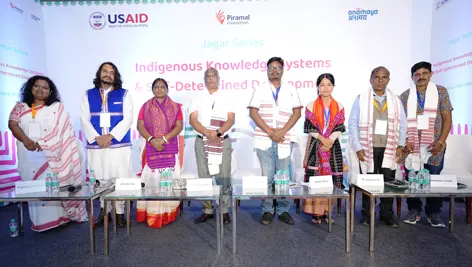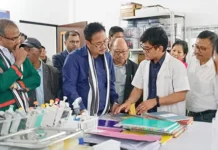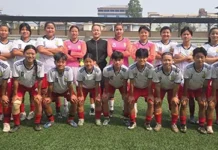ITANAGAR, 25 Aug: Bethem Marai, a senior volunteer of the Lohit Youth Library Network (LYLN), won appreciation for her presentation and interactions at a ‘Indigenous knowledge systems & self-determined development’ conclave organised by tribal health organisation Anamaya in Okhla, New Delhi, on 23 August, the LYLN informed in a release.
During the conclave, organised by Piramal Foundation, in partnership with USAID, to recognise and celebrate traditional indigenous knowledge systems and create platforms to learn from one another’s work and wisdom, experts, activists, and leaders explored the role of various community figures as custodians of traditional community knowledge, present-day documentation, and making it accessible for learning.
They offered valuable insights on placing communities at the forefront of creating sustainable futures through their exemplary work spanning geographies and time. They also underscored the importance of learning from unique cultures, traditions, and histories.
Marai made her presentation in the session ‘Human story of inspiring individuals’, which won her loud cheers.
“The session was aimed at inspiring the audience through their life and work,” the release said.
Marai dwelt on how the community library movement changed her life and the lives of many young individuals in the remotest regions of Arunachal Pradesh. “Through the library movement initiated by Sathyanarayanan Mundayoor, a long-time reader activist, we relentlessly work towards educating vulnerable populations by carrying bags of books to villages, including those in extremely difficult terrains, so that everyone can have access to books,” she said.
Marai spoke also about “activities such as drama, story sessions, poem recitation and theatre reading which the library activists adopted while conducting reading campaigns.”
Arunachal Pradesh Indigenous Affairs Director Sokhep Kri lauded Marai “for upholding the library movement and the good name of Arunachal in Delhi.”
The conclave was organised as a part of Anamaya’s signature ‘Jagar Series’, which aims to prioritise tribal health, inclusion, preservation of indigenous knowledge, and self-determined tribal development through partnerships and collaborations.



